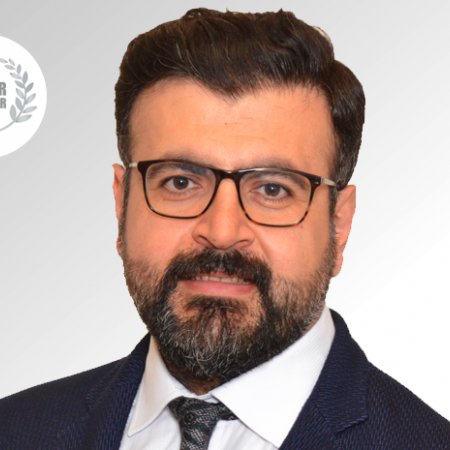May 26, 2022


Established in 2019, Delta Corp is a global, asset-light, fully integrated business engaged in transportation and logistics services, asset management, and servicing the supply chain of the maritime industry. Kirsten Provan spoke to Cem Bogusoglu, Head of Pulses Trading, about digitalization, the Black Sea pulse trade, and predicting market changes.
Delta Corp is a strategic partner of the Global Pulse Confederation and a key sponsorship partner for Pulses 22 in Dubai on May 10-12.
We are a customer-centric logistic and supply chain platform with our Delta Corp Holdings Ltd. headquarters in London. We also operate out of ten other global jurisdictions, including Ireland, Denmark, the Netherlands, Switzerland, Germany, the United Arab Emirates, India, Singapore, and South Korea, with a total headcount of over eighty personnel consisting of thirteen nationalities. We currently operate through three operating subsidiaries: Shipping and Logistics; Energy Supply and Transition; and Vessel/Logistics Asset Management. We believe these divisions provide us with a competitive advantage that allows us to maximize our market position with a business model that offers unrivalled scalability within the maritime and logistics industry.
We have developed proprietary technology products that lead to higher operating margins. The world of global trade is changing, and we know that we must change with it if we are to continue to be able to earn and maintain the confidence of our customers. Traditional shipping business models are not optimized for the modern market, so we have developed several proprietary technology products. Our decision-making process leverages our robust technology capabilities, the power of the data we have gathered and our ability to intelligently interpret it. That is why we have a dedicated analytics capability that services every part of our business, combining data with Artificial Intelligence to enhance our decision making and optimize operations for the benefit of our customers and our bottom line.
Yes, absolutely. Technology is now being utilized by a number of companies to understand how to deal with supply chain shocks; this is especially pertinent given how many there have been over the past few years. Utilising technology means that we can look on the other side of the curve and stay ahead of the market.
Black Sea countries, mainly Russia, Ukraine, and Kazakhstan, have been the rising producers of pulses in the last decade. They have increased the production of some pulses by almost 40 times compared to 20 years previously. This is the result of several factors, but it’s primarily because of strategic decisions by Black Sea governments to increase their agriculture exports substantially. The cost of agricultural land there is still among the cheapest in the world, and the production of pulses in Black Sea regions is setting new records year after year. The recent increase in the demand for pulses and their good profit performance compared to other crops have also contributed to the rise in production volumes in the Black Sea.
At Delta, we see big potential in pulses as sustainable protein sources for the future. With our already very strong know-how and our network both in the Black Sea and Asia, we realized we were in the perfect position to start trading pulses, and the Black Sea market was our main starting point because it was becoming the main supply outlet for the whole region with its strategic location and the increase in production volumes for all pulse varieties.
The war between Russia and Ukraine is, unfortunately, going to negatively affect pulses. Most of the pulses in the Black Sea region are spring crops, and, of course, planting campaigns have been severely affected in Ukraine. As a result, we will definitely see fewer pulses coming from there. From Russia, I expect similar volumes for most of the pulse crops, if not slightly less. As wheat is the main cash crop, Russian farmers will probably be looking to plant more of it, making it very unlikely that the Russian pulse yield will increase.
At Delta, we trade pulses globally. The Black Sea region provides a quick, high-quality, and flexible supply option for the Middle East and Asian markets compared to those of North and South American origins. Unfortunately, with the war, we had to shift our concentration to the other regions for pulses trade, such as Canada, South America, and Africa. We will do our best to fulfil the needs of our buyers in our destination markets regardless of the origin.
There is too much money chasing too little hence inflation is everywhere. We are a debt-free company, so we don’t experience cost pressure, and, since we operate only about 3-6 months in advance, market changes are more predictable and visible to us.
The Global Pulse Confederation’s Pulses 22 is obviously the biggest event and showplace of the pulses industry. Here at Delta, we were so thrilled to be given the chance to meet our industry partners face to face for the first time since the beginning of the COVID-19 pandemic. It was also even more exciting for us as we got to be one of the sponsors of the event.
Disclaimer: The opinions or views expressed in this publication are those of the authors or quoted persons. They do not purport to reflect the opinions or views of the Global Pulse Confederation or its members.